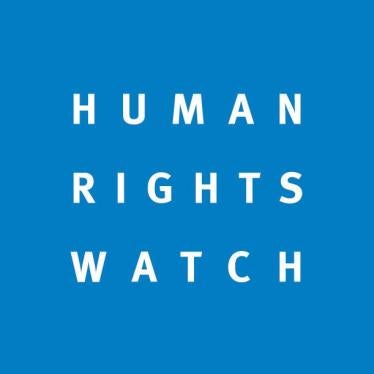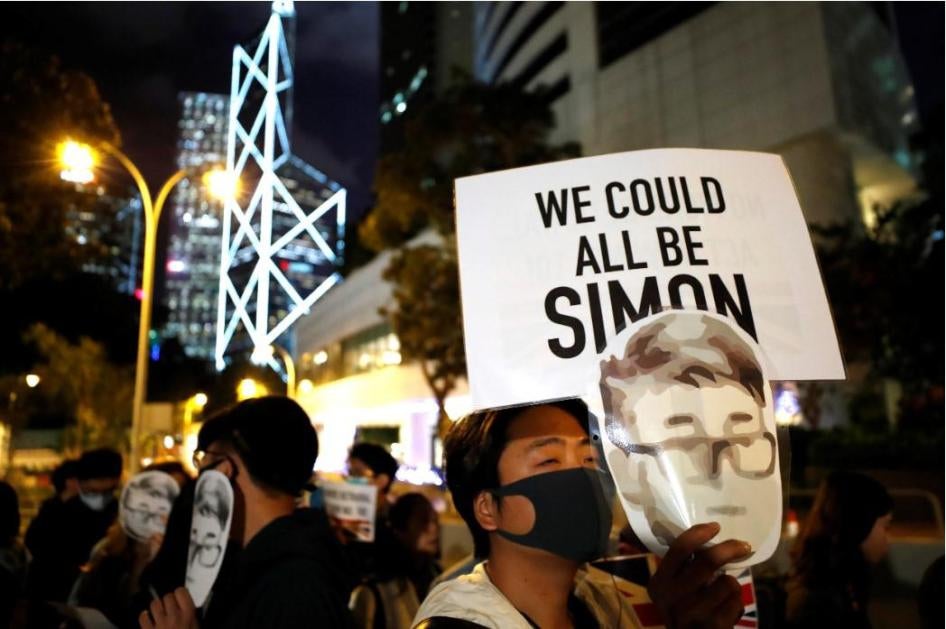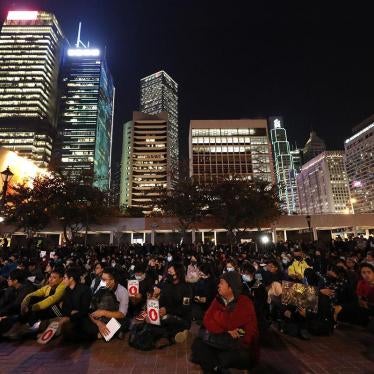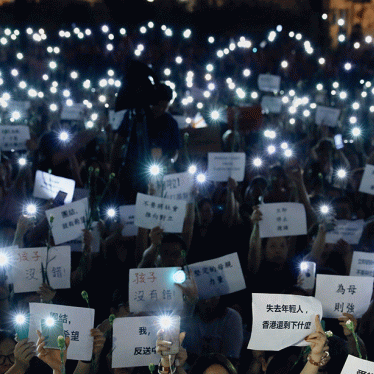“I was hung … [in] a spreadeagled pose for hour after hour,” said Simon Cheng, a former staff member of the British consulate in Hong Kong, describing how he was tortured after he was detained in August while on a business trip to mainland China. Mr. Cheng said that the police who detained him insisted that he was “a mastermind and British proxy to incite and organize the protests” in Hong Kong.
Beijing has responded to months of demonstrations in Hong Kong not by addressing people’s grievances that their freedoms are being eroded, but instead by claiming that foreign governments were behind the demonstrations.
It’s clear from Mr. Cheng’s account of his abusive interrogations that the police were not interested in the truth, but in inventing a reality that is politically convenient for the Chinese Communist Party.
In her 2016 memoirs How Enemies Are Made, the Chinese disability rights activist and filmmaker Kou Yanding described being secretly detained by the Chinese police for participating in the 2014 Hong Kong Umbrella protests. She said that her interrogators were uninterested in her explanations or her community-based work. Instead, they “not only want to make up stories,” she wrote, they “can even create reality.” As her interrogators reinvented her chance meetings with Chinese dissidents as subversion plots, Ms. Kou felt she was in some kind of “magical realism,” a fiction her captors willed into being.
This "magical” world serves the purpose of passing the buck for failed government policies, rallying the bureaucracy for repression, and shoring up popular support. Official documents recently leaked to The New York Times substantiating the repression in Xinjiang, in western China, quote President Xi Jinping attributing incidents of unrest there to “extremist religious thought,” that “like a drug” makes people “go crazy and … do anything.” The idea that the region’s Turkic Muslims are infected with a “thought virus” – rather than having genuine grievances against an oppressive government – led the government to detain one million of them in “political education” camps, where they are forcibly indoctrinated.
Professor Fu King-wa of Hong Kong University recently traced Chinese government messaging about the Hong Kong protests on the Chinese social media platform Weibo. He concluded that the Chinese authorities had constructed "a separatist or ‘pro-Hong Kong independence’ frame for Hong Kong’s anti-extradition movement.”
A month into the protests, the Chinese government unblocked online the previously sensitive term “Hong Kong independence,” and then generated more than 10 per cent of posts that supported this angle. Meanwhile, mainlanders who supported the protests were detained or silenced.
The Chinese government was not merely spreading fake news or disinformation. Rather, it seems to be practising a kind of reality engineering in which it is using its coercive and information machinery to generate enemies, be they Islam, an independence movement or imperialistic plots.
These imaginary enemies come at the expense not only of the countless individuals harmed in the process, but of finding real solutions to the discontent in Xinjiang and Hong Kong. Only in this way, the party seems to believe, can it ensure its legitimacy in the eyes of the Chinese public – convincing people that only the party can defend the country against all threats, even fabricated ones.
But by blaming foreign governments for self-generated problems, China’s leadership seems to be increasingly trapped inside its own propaganda bubble. Under Mr. Xi’s centralized rule, lower level officials are wielding the magic wand of reality engineering, telling the top what it wants to hear. The results have been policies in Xinjiang, where the government has cracked down on Turkic Muslims, and in Hong Kong, that are disastrously misguided, resulting in massive suffering.
While these dynamics are not new – they are similar to those Mao Zedong used during the 1958-62 Great Famine – they seem to have enjoyed a resurgence since Mr. Xi came to power in 2013. The milestone was in 2015, when the government began to broadcast forced confessions of detained human rights lawyers and several foreign nationals on state television, publish lengthy “exposés” to smear them and ensure that such a reality is spread far and wide using social media.
Previously, Chinese authorities tried to keep their oppressive measures muted: The imprisonment of the dissident Liu Xiaobo in 2009 was merely a one-liner in the state newspapers. The idea then was to prevent those promoting democratic ideas from reaching the public. The government’s aim now seems to be to publicly discredit those who speak for rights as foreign agents.
Unlike in Mao’s time, when China was isolated, Mr. Xi’s policies now have global implications. The world should be alarmed by the trajectory of the Chinese government’s worldview. Its mistreatment of Turkic Muslims in Xinjiang, the people of Hong Kong and now foreign diplomatic staff should be a warning for all.









